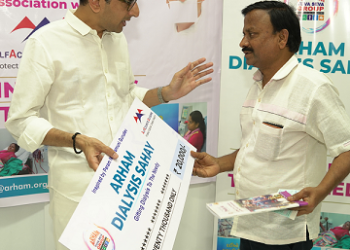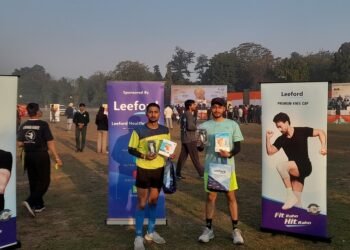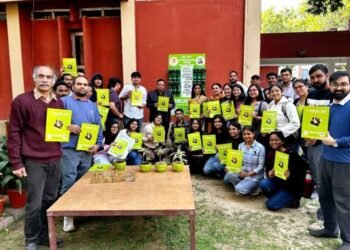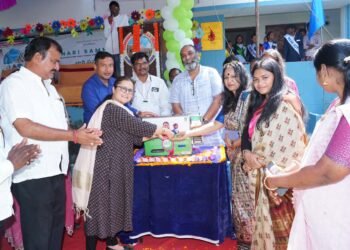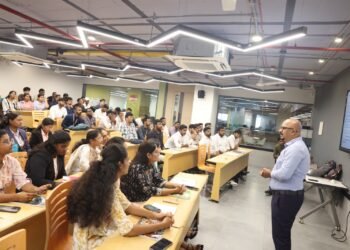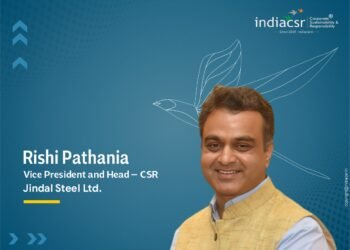India Autism Center (IAC), an initiative by Ratnabali Group, aspires to be the first of its kind development center in the world for individuals with autism under the leadership of Suresh Somani. The Center is coming up on 52-acre land parcel at Sirakole on Diamond Harbour Road near Kolkata, India, company said.
The Center will be equipped with residential, day-care and vocational training facilities for its residents and visiting students and aims to be completed by 2022. Equipped with a professional team and many other resources, India Autism Center aims to address everyone’s educational, emotional and social needs and assist them in reaching their full potential by teaching them essential skills needed to live a more independent life, statement said.
Suresh Somani, Managing Trustee & Chairman, India Autism Center said, “All parents and every educator should encourage holistic growth and development of people under the spectrum. Educational systems often focus on strengthening in-demand-skills to increase employability. Interdisciplinary growth is essential but unfortunately undermined by academic blinkers forced on children’s eyes. While we observe International Women’s Day, our focus should be such that each girl-child is emotionally empowered, passionately driven, physically confident and spiritually aligned.”
“India Autism Center believes that by ensuring meaningful employment opportunities for an individual on the autism spectrum, she can lead a life of general well-being and self-sustainability. IAC will provide the right kind of support to the individuals, so that most of them are able to strive for excellence in the workplace, no matter what the nature of employment may be.”, it said.
IAC’s program is designed to identify the strengths of these individuals and to empower them with the necessary skills required to be successful and productive members in both their homes and community.
With the larger goal of ensuring awareness on gender equality and inclusion of differently abled, India Autism Center organised an engaging discussion session observing International Women’s Day 2020.
The discussion was addressed by Jeeja Ghosh, disability rights researcher and activist, Dr. Sarmishtha Chakrabarti, psychiatry specialist and practices in Columbia Asia Hospital and Apollo Clinic, Smita Sharma, Behaviour Analyst and Training in Charge at Amrit Somani Memorial Centre, Namita Somani, Managing Trustee of Amrit Somani Memorial Center and Debjani Dutta Roy, parent of a special child.
❖ Almost 1 out 68 children are diagnosed with ASD in India. It is also considered to be one of the most rapidly growing developmental disability all over the world, including India.
❖ The level of awareness and knowledge about Autism Spectrum Disorder (ASD) or Autism is still at a low level.
❖ It is sad that many Indian paediatricians’ or health care providers don’t consider the delay in speech as a problem until the age of 3.
❖ In India, one of the most common mistakes made by people is to call Autistic individuals as mentally retarded whereas in reality they are completely different categories of disability.
❖ Despite an increase in the number of ASD cases being detected in India, many individuals with Autism still remain undiagnosed and fail to receive the appropriate services they need.
This discussion highlighted the rights of people with autism and the importance of empowering women and girls with autism and disability. They face multiple challenges, including barriers to accessing education and employment on an equal footing with others, denial of their reproductive rights and the freedom to make their own choices and a lack of involvement on matters that concern them.
Jeeja Ghosh said, “Gender equality and women’s empowerment must reach to every women and girls and our efforts to achieve sustainable development goals must uphold the core promise to leave no one behind”.
As the discussion progressed from the challenges that an autistic women face; starting from accessing basic rights to formal education and the inadequate support available to them, the discussion reaffirmed IAC’s commitment to ensure necessary support is provided to the girl child so that they are able to exercise their rights and fundamental freedoms.




